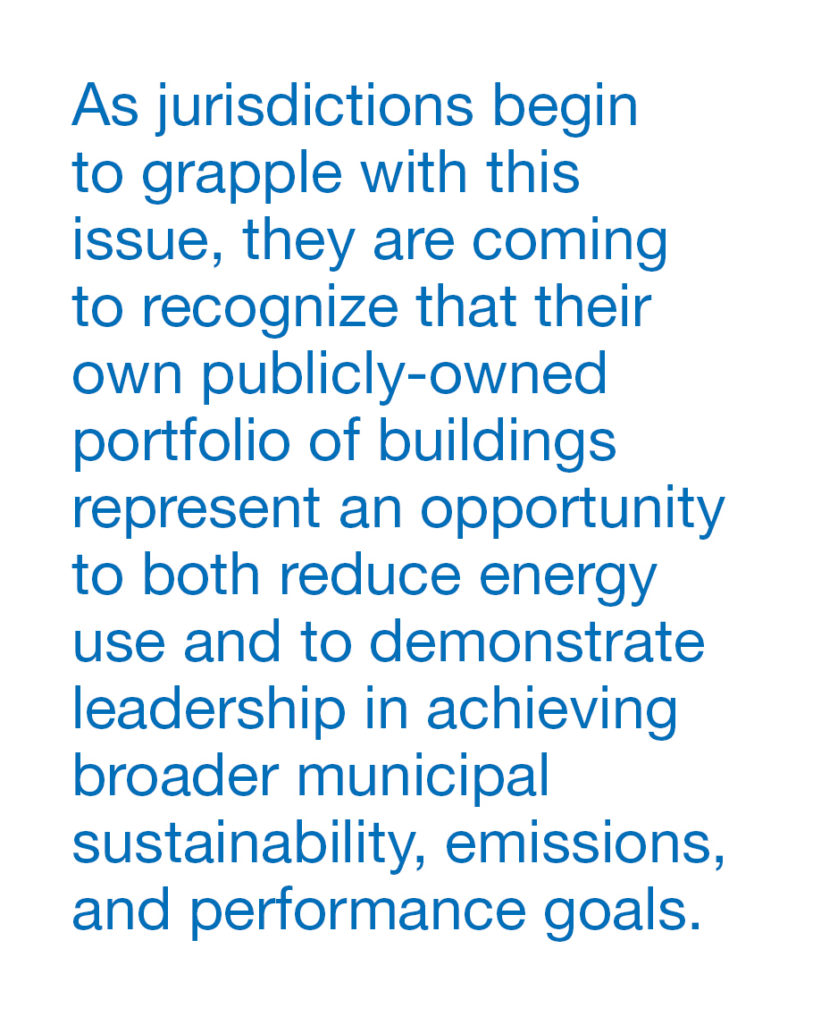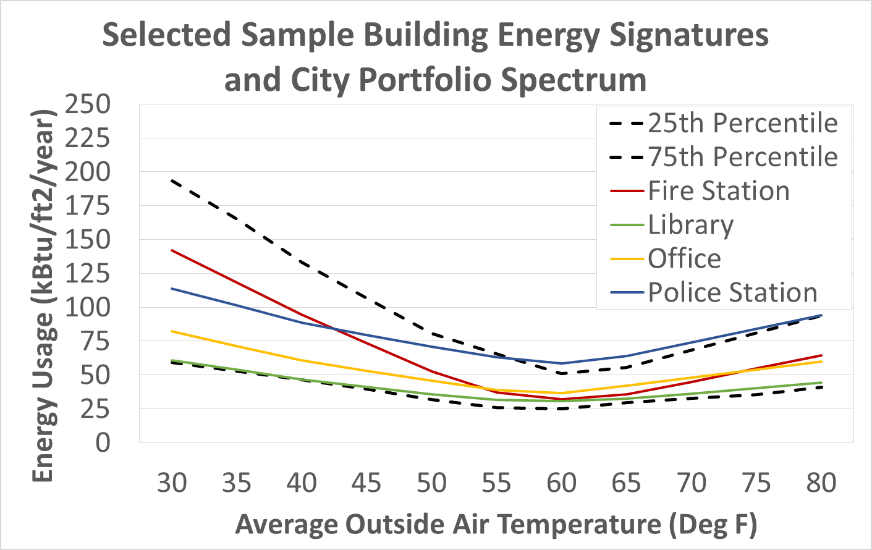 Buildings are responsible for almost half of all U.S. energy consumption (46%), and poor-performing buildings have an outsized impact on energy use. But without a systematic approach to track building performance, it’s often difficult to know where to start. By setting up systems to monitor and understand building performance, cities can get strategic about reducing energy usage by identifying potential improvement targets in order to significantly reduce total energy use among their public building portfolio.
Buildings are responsible for almost half of all U.S. energy consumption (46%), and poor-performing buildings have an outsized impact on energy use. But without a systematic approach to track building performance, it’s often difficult to know where to start. By setting up systems to monitor and understand building performance, cities can get strategic about reducing energy usage by identifying potential improvement targets in order to significantly reduce total energy use among their public building portfolio.
In most cities, the energy code is the primary way of regulating building energy performance. And while code advancements have greatly increased new building efficiency, codes have a limited impact on existing buildings. Furthermore, the influence of energy codes ends before the building is even occupied, so they have limited impact on actual energy use over the life of the building. As jurisdictions begin to grapple with this issue, they are coming to recognize that their own publicly owned portfolio of buildings represent an opportunity to both reduce energy use and to demonstrate leadership in achieving broader municipal sustainability, emissions, and performance goals.
With a grant from the U.S. Department of Energy and funding from the Northwest Energy Efficiency Alliance, NBI and our partners, Maalka and EcoEdge, have developed a program to help municipalities understand the energy performance of their building portfolio and address gaps in energy policy related to buildings. Working with the cities of Boise and Tacoma, the team refined its approach and methodology and now has expanded work to other jurisdictions—Cambridge, Providence, Eugene, and Missoula with more to come—to help these cities track energy consumption across their building stock, identify prioritized candidate buildings for targeted improvements, and create and implement Strategic Energy Management plans.
The effort enables small and medium municipalities, which typically have limited resources to address building energy performance, to strategically and holistically assess the performance of their municipal building stock. NBI’s FirstView virtual energy auditing and advanced benchmarking tool is used to complete diagnostic analysis of energy data for all buildings in each city. FirstView uses basic data inputs—one year of energy bills, building size, building type, and location—to generate weather-normalized energy signatures (the colored lines shown in the chart) and compare them to peer buildings (the dashed lines in the chart), and to provide diagnostic recommendations for each building analyzed. This strategic and targeted approach, combined with best-practice policy mechanisms—such as municipal policy gap analysis, stretch codes, and disclosure ordinances—can deliver much more overall energy savings in existing buildings compared to the standard approach of addressing one building at a time.
To support improvements in code and policy strategies that can be developed for implementation across the broader building sector in cities, we are evaluating how effectively energy codes—including those that apply to remodeling and retrofit projects—address building energy use. Through a sensitivity analysis of building performance factors affecting design, operation, and occupancy, we are working to determine the impact of current codes, and identify opportunities for expanded codes or policies to more directly address major energy use categories across the building life‐cycle. This analysis is focused on municipal buildings, but the program’s approach and tools are broadly applicable to other portfolio holders and building types, including both private and public sectors.
Ultimately, this project gives cities the tools and resources that helps them to track and manage the performance of municipal building portfolios, while moving toward broader policies to extend these efforts to the entire building stock. The strategy allows cities to lead by example while building expertise and credibility in managing building performance.
For more information about this project, contact Alexi Miller at [email protected].
Alexi Miller, Senior Project Manager
